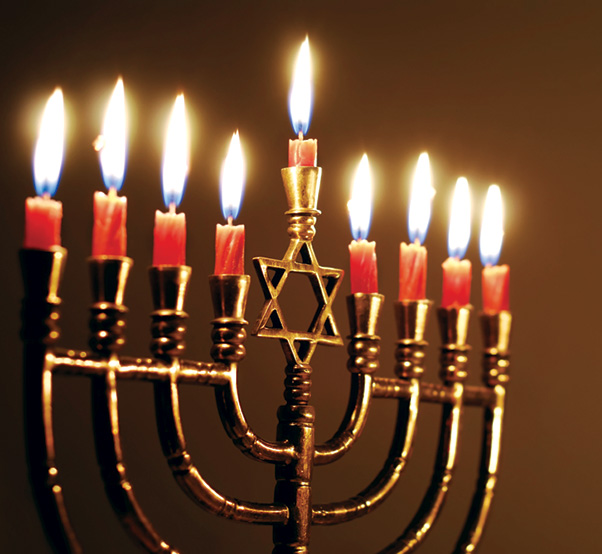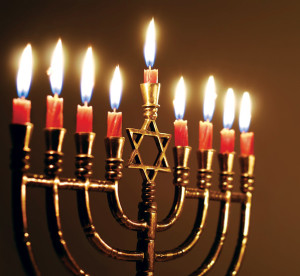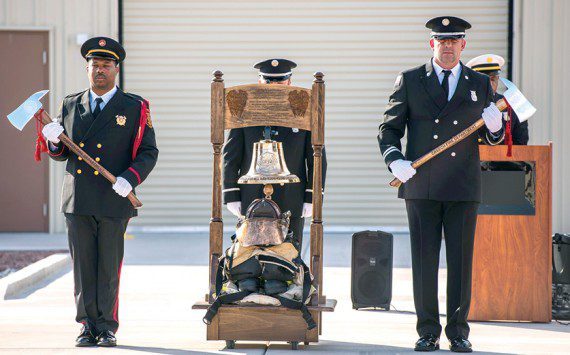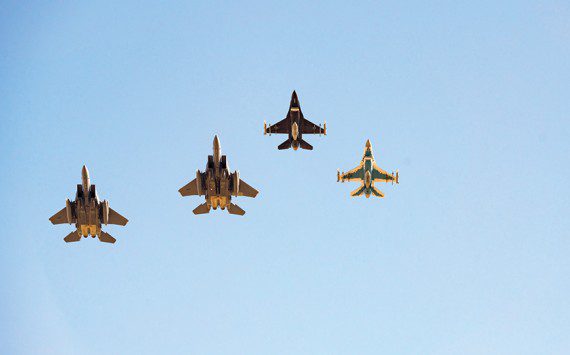Courtesy photo
Hanukkah, a holiday most known for candles, doughnuts and rebellions, is a time when Jews celebrate vanquishing their enemies, rebuilding their temple and, most importantly, kindling of the Menorah.
The Menorah was a seven branched candelabra made of pure gold situated at the entrance of the ancient Jewish temple. It was lit every day at dusk and seen glowing throughout the city of Jerusalem. Only fresh olive oil of the purest quality was burned to light its lamps. The Menorah was the original official symbol of Judaism and represented the message and pride of Judaism.
The Maccabean revolt against the Greeks culminated in the reclamation of the Jewish people’s temple. They waited anxiously for the opportunity to light the Menorah as a sign of pride and connection to G-d, and they were dismayed to find that the Greeks had destroyed almost all of the flasks containing the pure olive oil needed to light the Menorah. One flask was finally found hidden away with the seal still intact, but it only had enough oil to light the Menorah for a single day. Once this flask was used, it would take another week for the Jews to obtain new olive oil to light their beloved Menorah. They lit the Menorah with what they had and, miraculously, the oil that should have lasted a day burned for eight days.
The miracle of Hanukkah and the reason Jews have celebrated this holiday for about 2,200 years is not about the great victory over the Greeks or reclaiming their homeland. It wasn’t even about finding the oil; the holiday was established to celebrate the miracle of the oil burning seven days longer than it should have.
Throughout the centuries, Jewish sages and mystics discuss and expound on the miracle of the oil and why it was a strong enough symbol of hope and strength to warrant the celebration of a new holiday. Taking a deeper look at the source of the miracle, the oil, a seemingly simple question can be asked: why not just use different oil or candles for the days they wouldn’t have had oil? Why did it have to specifically be pure olive oil? Is the entire holiday based on a preference of one kind of fuel for the Menorah, or is there something special about the fuel?
Obtaining the pure olive oil for the Menorah was an extremely difficult process. To create the perfect oil, the olive needed to be completely crushed and destroyed, and only the very first drop that came out of each olive was collected and designated to be used for the temple. The amount of work and the quantity of olives needed to create a single flask of the purest olive oil was incredible.
For the Menorah to shine so brightly that the entire city of Jerusalem would see it, for the Menorah to be the symbol and pride of the Jewish people, the Menorah had to be lit by brightest, hardest earned and purest form of oil. It had to be lit with oil that could only be attained by hard work and extraction from utterly crushed olives.
The sages teach us that this is what we are actually celebrating during Hanukkah, that the oil obtaining process and the resulting bright, pure and powerful flame of the Menorah is a yearly message and an instruction to each person lighting candles on Hanukkah. To shine bright, to influence the world and make a difference, there needs to be an incredible amount of effort and resiliency. To be your brightest and your best, the olive had to go through the process of being utterly crushed and refined until the very best of it can be brought out and extracted.
Often, people struggle with seeing the good in their lives, the “silver lining” of daily struggles. We often think to ourselves that we are being crushed under the weight of responsibility and life stressors. Hanukkah comes to teach us that while the pain is real, unpleasant, and difficult, we need to remember that the purest and brightest oil can only be extracted from being crushed; our struggles and challenges will extract the best in us and will refine us to be the strongest and most resilient and powerful versions of ourselves.
Hanukkah is the holiday when we recognize our ability to overcome challenges, when we pray for strength and hope to find it within. When we honor our personal struggles and powerful resiliency, and when we appreciate the good and positivity that comes through hard work.
Blessings.













